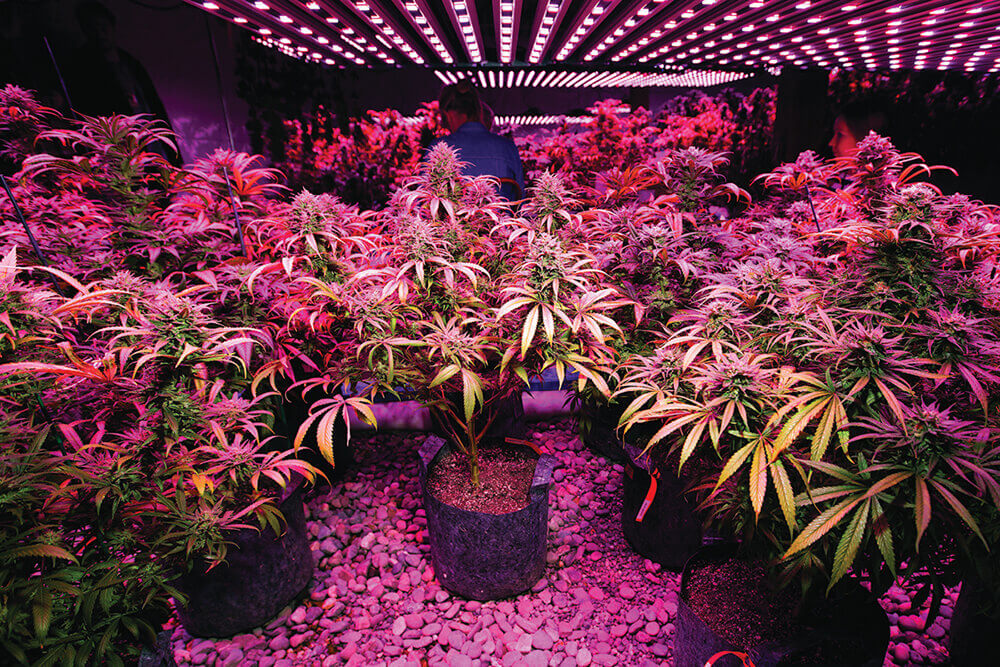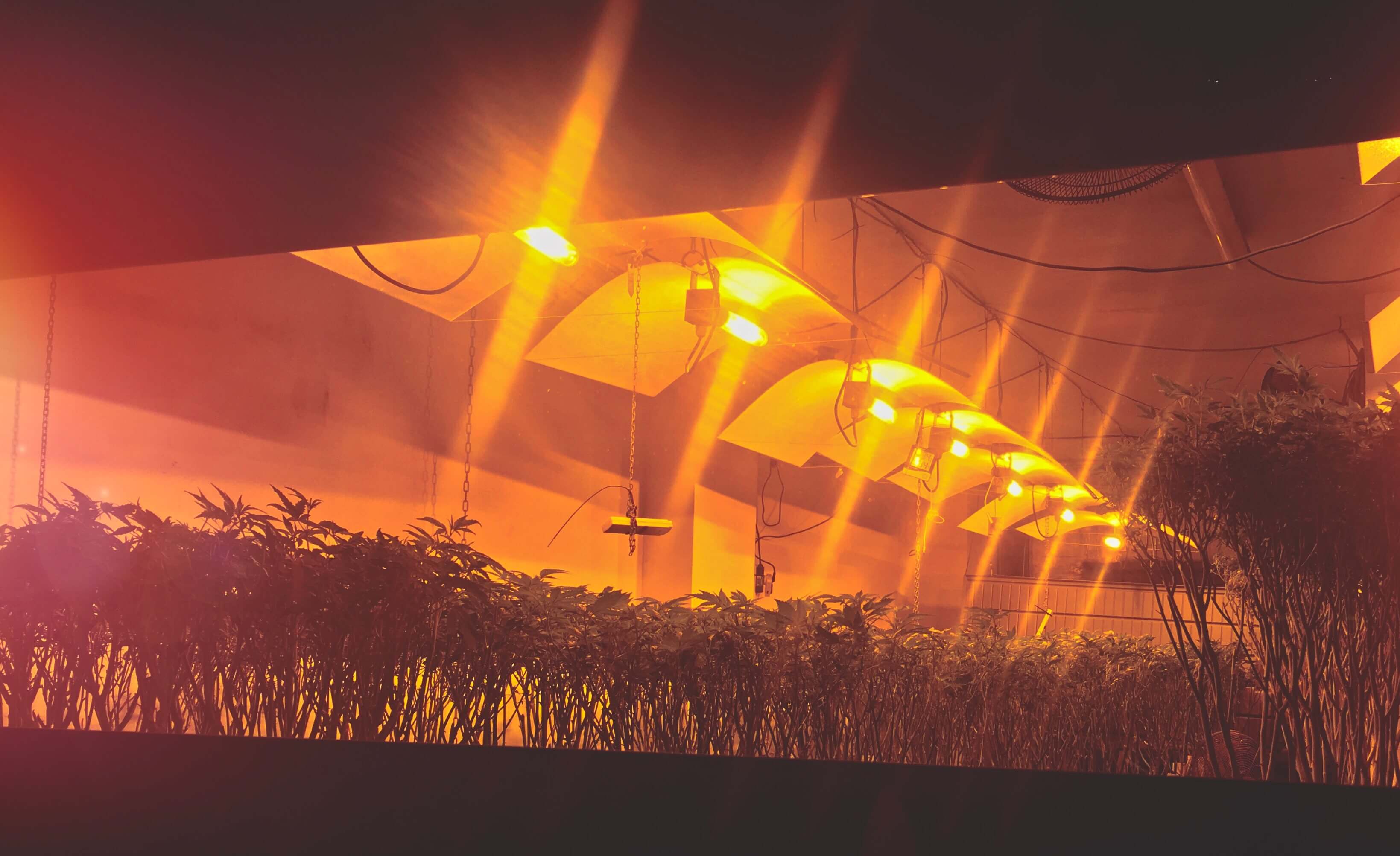-

How Much it ll cost to build an app like
- Cost to develop an Uber Tow Truck App
- Cost to develop a Pest Control App
- Cost To Develop a Handyman App Like Uber
- Cost To Develop a Doctor Appointment Booking App
- Cost To Develop An App Like MoodBites
- Cost To Develop An App Like SkipTheDishes
- Cost To Develop An App Like Q Chat
- Cost To Develop An App Like TickTick
- Cost To Develop An App Like ContractBook
- Cost To Develop An App Like Utter
-

How Much it ll cost to build an app like
- Cost to develop a Video Editing Mobile App like Magisto
- Cost to develop a Live Video Streaming App like Twitch
- Cost to develop an app like Home Workout- No equipment
- Cost to develop a Sports News app like theScore
- Cost to develop an Application like Reddit
- Cost to develop a Sports News app like theScore
- Cost to develop an E-learning platform like Udemy
- Cost to develop an On Demand Doctor App like Heal App

Cannabis Tech in Cultivation, Extraction, and Retail
Cannabis tech is driving major change as more countries legalize marijuana and people increasingly embrace CBD for medical and recreational use. New cannabis businesses are launching rapidly to meet rising demand, while developers are building apps that offer everything from product information and sales to social platforms connecting users worldwide. Over the past decade, technology has reshaped how we live – changing communication, shopping, and even manufacturing. Similarly, it’s now playing a vital role in revolutionizing the medical cannabis industry.
Ways Technology is Transforming the Cannabis Industry
Technology is transforming every stage of the medical cannabis industry, from cultivation to consumption.
It begins with how cannabis seeds are planted and monitored using smart sensors and automated systems, ensuring optimal growth conditions. As the plants mature, advanced tools help refine harvesting, extraction, and processing techniques, improving both efficiency and product quality.
Once cannabis oil and other CBD products are created, technology continues to play a role in packaging, distribution, and even how consumers use and track their intake. From seed to sale, cannabis tech is streamlining operations, reducing costs, enhancing safety, and helping meet strict regulatory standards.
Use of Technology in Cannabis Cultivation
1. Smart Environmental Monitoring with Remote Sensors
Modern cannabis farms are equipped with remote sensors that track critical environmental factors in real time. These include CO? levels, soil moisture, humidity, and even the soil’s electrical conductivity. This data allows growers to fine-tune conditions for optimal plant health and yield, reducing guesswork and increasing consistency.
2. Precision Agriculture and Automated Growing Systems
Technology enables precise control over nutrients, lighting, and irrigation. Automated systems use AI and machine learning to adjust growing conditions based on plant stage, health, and environmental feedback, leading to healthier crops and more predictable harvests.
3. LED Lighting for Energy-Efficient Growth
Cannabis cultivators are increasingly using LED lighting in place of traditional high-pressure sodium (HPS) bulbs. LEDs consume less energy, produce less heat, and last longer, resulting in lower utility costs and a more stable growing environment that supports consistent growth cycles.
4. Advanced Extraction and Processing Methods
Though technically post-harvest, innovations in extraction directly tie back to cultivation quality. Modern CO? and ethanol extraction techniques preserve cannabinoid purity and potency. These methods also support new product formats like oils, edibles, and topicals, driving demand for high-quality, well-grown cannabis.
Cannabis Tech in Retail
1. Seed-to-Sale Tracking Systems
Seed-to-sale platforms use cloud-based software to monitor cannabis products throughout the entire supply chain, from cultivation and processing to packaging, sales, and delivery. These systems enhance transparency, ensure compliance with state and federal regulations, and build consumer trust by providing detailed product traceability.
2. Point-of-Sale (POS) and E-Commerce Integration
Modern cannabis retailers are leveraging advanced POS systems that sync with online stores, inventory management tools, and customer databases. These systems streamline transactions, manage compliance documentation in real time, and make it easier to handle both in-store and online purchases through a single interface.
3. Data-Driven Personalization and Customer Insights
E-commerce platforms and retail apps gather rich customer data, allowing cannabis businesses to track buying behaviors, preferences, and product usage trends. This insight empowers brands to personalize marketing campaigns, adjust pricing strategies, and offer product recommendations tailored to individual user profiles.
4. Automated Logistics and Delivery Tracking
Tech-enabled logistics platforms help cannabis retailers manage fulfillment efficiently across varying legal jurisdictions. These systems provide real-time tracking, secure delivery verification, and automated recordkeeping, ensuring that products arrive safely and in compliance with regional regulations.
LED Lighting’s Impact on Cannabis Growth
1. Energy Efficiency and Long-Term Cost Savings
LED grow lights consume significantly less electricity than traditional HPS bulbs, making them ideal for large-scale indoor cultivation. Although the upfront cost is higher, LEDs reduce monthly utility bills and maintenance expenses due to their extended lifespan, offering a strong return on investment over time.
2. Improved Light Spectrum Control
Advanced LED systems allow growers to customize the light spectrum to match specific growth stages, such as vegetative or flowering phases. Tailoring wavelengths improves photosynthesis efficiency, enhances cannabinoid and terpene production, and leads to healthier, more potent plants.
3. Lower Heat Output and Better Environmental Stability
Unlike HPS bulbs, LEDs emit minimal heat, which prevents overheating and maintains more stable growing conditions. This reduces reliance on HVAC systems for climate control, leading to less energy consumption and a reduced risk of heat stress or crop damage.
4. Automation and Smart LED Integration
Modern LED grow systems can be integrated with smart farming platforms, allowing remote control via mobile apps or software dashboards. Growers can automate light schedules, adjust brightness levels, and monitor performance in real time, improving precision and reducing manual labor.
Electricity Storage in the Cannabis Industry
1. Reducing Peak Hour Energy Costs with Smart Storage
Electricity rates often spike during peak demand times. With storage solutions like Tesla Powerwall and Powerpack, cannabis growers can charge batteries during off-peak hours when electricity is cheaper, then use stored power during peak times, substantially lowering energy expenses.
2. Ensuring Uninterrupted Operations During Outages
Power outages can disrupt growing schedules and climate control systems, putting entire crops at risk. Battery storage systems provide reliable backup power, ensuring that lights, irrigation, and temperature control continue without interruption, critical for preserving plant health and yield.
3. Sustainability and Integration with Renewable Energy
Many cannabis operations are pairing energy storage with renewable sources like solar panels. This combination allows growers to harness clean energy, store it for later use, and reduce their reliance on the grid, supporting sustainability goals and lowering their carbon footprint.
4. Scalability for Grow Operations of All Sizes
From small indoor farms to massive commercial facilities, modern energy storage solutions are modular and scalable. Growers can customize their systems to match their energy needs and expand as their operations grow, making battery storage a future-proof investment in energy efficiency.
Cannabinoid Biosynthesis
1. What Is Cannabinoid Biosynthesis?
Cannabinoid biosynthesis is a cutting-edge method where genetically engineered microorganisms – typically yeast or bacteria – are programmed to produce cannabinoids. Instead of growing entire cannabis plants and extracting compounds, this lab-based approach generates cannabinoids directly, making production faster, cleaner, and more scalable.
2. Cost Reduction and Scalable Production
Traditional cannabis cultivation and extraction involve land, labor, and long growing cycles – all of which drive up costs. Biosynthesis eliminates many of these expenses, offering a more affordable alternative. As demand for CBD and rare cannabinoids increases, biosynthesis allows companies to scale production while keeping costs down.
3. Access to Rare and Minor Cannabinoids
Many therapeutic cannabinoids like CBN, THCV, or CBC are found in trace amounts in cannabis plants and are expensive to extract. Biosynthesis enables producers to create these rare cannabinoids in larger quantities and with greater purity, opening doors to new medical research and specialized CBD products.
4. Year-Round and On-Demand Production
Unlike plant-based cultivation that’s subject to seasonal cycles, biosynthesis offers consistent, year-round cannabinoid production. This on-demand capability allows manufacturers to respond quickly to market needs, develop custom cannabinoid blends, and maintain reliable product availability without growing a single plant.
Cannabis Breathalyzer
1. Why Traditional Testing Methods Fall Short
Unlike alcohol, cannabis doesn’t metabolize quickly in the body. THC can remain in blood, urine, or saliva for days or even weeks after use, making standard tests unreliable for determining real-time impairment. This creates challenges for law enforcement trying to enforce driving laws fairly and accurately.
2. Cannabis Breathalyzers: A Real-Time Impairment Solution
To address this, researchers are developing cannabis breathalyzers that detect recent cannabis use within a few hours – the window when impairment is most likely. These devices aim to provide law enforcement with accurate, on-the-spot results without penalizing individuals who are no longer impaired but still test positive using older methods.
How Cannabis Tech Is Reshaping the Future And How Let’s Nurture Can Help
Thanks to ongoing innovations in cannabis tech, the ways consumers interact with CBD and cannabis products are expanding rapidly.
From vaping and oils to edibles, capsules, and transdermal patches, technology is creating more personalized and efficient methods of delivery. Advanced diagnostics like saliva testing are even helping researchers determine the most effective formats for individual users, ensuring higher efficacy and better user experiences.
The entire cannabis industry is being redefined by technology, from seed-to-sale tracking and smart cultivation systems to AI-powered retail insights and biosynthesis-based cannabinoid production.
VR and AR are also emerging in cannabis marketing, training, and retail, offering immersive ways to connect with consumers, educate staff, and visualize products before purchase.
As the cannabis industry becomes more competitive and digitally driven, having the right tech partner is essential.
That’s where Let’s Nurture comes in. Whether you need a custom mobile app, AI integration, immersive AR/VR experiences, sleek web design, or robust IT solutions, our team helps cannabis businesses stay ahead of the curve.
Let’s Nurture empowers cannabis companies to innovate, scale, and succeed in this fast-changing landscape. Reach out today to bring your cannabis tech vision to life.

Author
Our Partners




WhatsApp us








